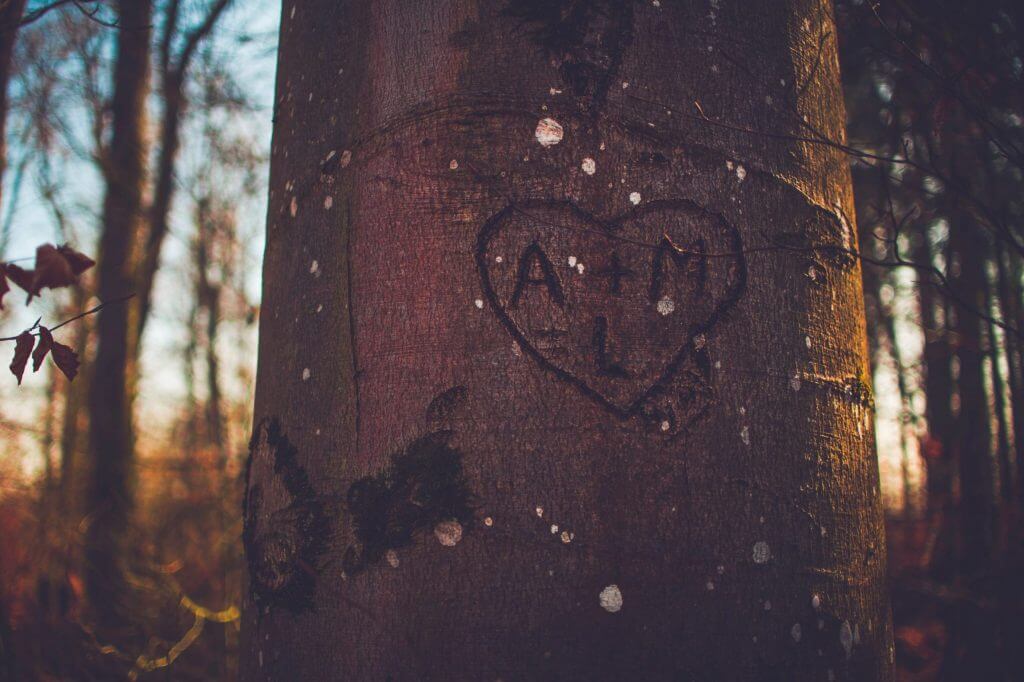Being "in love" seems to be the ideal.
It's something we are all striving for in either our current or hoped-for future relationships. We’ve been obsessed with it since our earliest days—Disney movies and elementary school love notes come to mind, and even as adults, most individuals rate a “satisfying romantic relationship” as their number-one goal in life, even above a successful career and financial security.
My analytical mind can’t just leave that statement be—what do people mean when they say they desire a satisfying romantic relationship? How do you know when you’re in one? What are the qualities and trademarks to let you know you’ve attained this goal?
I recently met with a client who told me that he loved his girlfriend but that he wasn’t “in love” with her.
I asked him what the distinction was, to which he responded “you love a ton of people, you’re only ‘in love’ with one person.” While I think his response falls short, it definitely gets the conversation rolling.
His reflection points to the fact that being “in love” is something unique and intimate, vs. love itself is something we have with multiple people—namely our family members and good friends. Quite frankly we are called to love everyone.
Upon further prompting, my client got frustrated, saying that “being in love” is so hard to define, but you know when you’re in it, and you definitely know when you’re not.
I agree, I think that a relationship with your significant other needs to be something unique, intimate, and unlike any other relationship in your life, but so many elements of a relationship with your significant other already make it distinct from all others. Though this all varies based on where your relationship is at—physical intimacy, making important decisions together, vulnerability, and creating a shared vision for yourselves, are all trademarks of this type of relationship.
[click_to_tweet tweet="It's hard to define, but you know when you're in love and you definitely know when you're not. " quote="It's hard to define, but you know when you're in love and you definitely know when you're not. "]
It might be something else...
I think what my client was getting at however, is that even though you engage in this intimate behavior with someone, it may still be the case that you’re not “in love” with them. So what else is it? If you strip away the behaviors, what is left?
I think it comes down to decisions and feelings. Some may argue with me on this point, but it seems that a person cannot just decide to be in love with someone. In other words, it comes down to a feeling. It comes down to the state where I am so happy that I am with you—you and nobody else.
I think we can all agree that the above description seems like an amazing place to be with your significant other. In fact, I have broken up with a guy because I wasn’t happy that I was with him specifically. It is beyond important to want to be with the person you’re in a committed relationship with.
Crazy in love...
However, I think that the state of being “in love,” though not always, is something that is cut from the same cloth as a little something called "infatuation."
The dictionary defines infatuation as a foolish or unreasonable passion. It’s true, love doesn’t really make sense.
The ongoing joke is that you have to be crazy to be in love. However, you don’t want your love to be primarily based on an unreasonable passion. The person you love needs to be worthy of your love through their quality of character and in how they treat you and those around them.
What I’m trying to say is that, while it’s not wrong to be in a state of infatuation, in and of itself, it cannot sustain a relationship. It is important but not sufficient. As such, don’t let “being in love” become an enemy of the relationship. To love someone is a decision (which has emotional elements), and to be “in love” is a state of being, that a person has a limited degree of control over (Cupid either shot you or he didn’t).
[click_to_tweet tweet="To love someone is a decision, to be “in love” is a state of being." quote="To love someone is a decision, to be “in love” is a state of being."]
What does all of this mean for my client? Or for anyone who is in a good relationship by all other standards but just isn’t ‘in love’ the way we all desire to be?
Create space for you and your significant other to be vulnerable.
While I wouldn’t tell him or anyone in a similar situation to break up or stay together indefinitely, there are a few things that come to mind. The first is vulnerability.
“To love at all is to be vulnerable” (C.S. Lewis).
Some modalities of therapy say that looking into your lover’s eyes imitates the divine gaze of God. How powerful! Have conversations with one another about your inner worlds, talk about your desires and dreams. This vulnerability inevitably brings people closer together. That closeness may begin to resemble a state of being “in love” (maybe you don’t need Cupid after all).
[click_to_tweet tweet="Looking into your lover’s eyes imitates the divine gaze of God." quote="Looking into your lover’s eyes imitates the divine gaze of God."]
Don’t throw in the towel on a great relationship because you’re not in a state of emotional infatuation. Give yourselves the space, the time, and the chance to be vulnerable. Perhaps you were in love and fell out of it. Maybe you used to be in love and the person betrayed you, and as a result you don’t know if you’ll ever let yourself get there again.
I’ll end by saying this. If love is present, with a little effort and a lot of vulnerability, being in love can and will follow.


